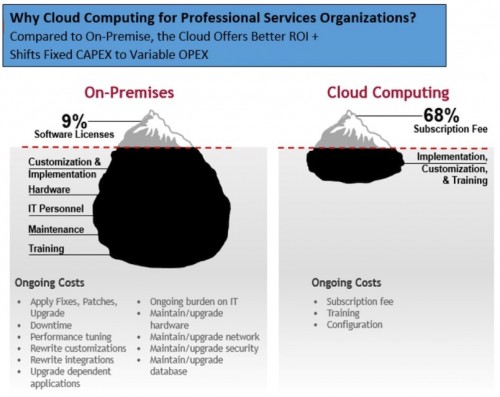Many (probably most) hotels still have their most critical software system installed on property. Most likely in a small dark room, with little ventilation and no proper backup system in place. I cannot recall the number of times I got involved with a frantic call from a client, who’s PMS servers failed, who’s network failed, who’s power failed, and unfortunately without a proper backup procedure in place. As a result the client lost usually multiple days of transactions, sometimes all was lost, and was out of a system sometimes for more than 24 hours.
When at MICROS, I was often faced with the question “Is your hosting reliable?” To answer that question with some real data, I reviewed the uptime of a chain client who had roughly 100 properties, 50 hosted by MICROS, and 50 still with a PMS system installed at the property. The results revealed that a hosted solution is at least 20 times more reliable (on average) versus those installed at the property, and when things do go wrong, due to good IT processes a backup is actually available to restore from.
Rather than hosting, the buzz word for centrally installed and managed applications is now (and has been for a while) Cloud Computing. It’s a little more complicated than that, but that’s really what it is. Let’s review why hotels can benefit from Cloud Computing, especially the small to mid size hotels from both a technology and service perspective.
From a Technology view point:
Cloud computing is more cost effective. Especially for smaller hotels, pay as you go, can help the bottom line in good and in bad times.
Getting access to “big chain functionality”. Large hotel companies have the resources to create their own custom functionality. Smaller hotels and chains do not, but when in the cloud they can leverage development, maintenance and upgrades across many small hotels. For smaller hotels, cloud computing means complete cloud-based software as a service (SaaS) PMS and hotel systems.
No IT required, reducing cost of ownership. As for legacy systems, small to mid size hotels have less legacy systems to deal with and do not need to throw out much when they switch to a cloud based PMS.
Security. Security is important, and for larger hotel chains security might still be a little shaky by their standards, but it is almost always much better than what small to mid size hotels can provide for themselves.
Lastly; the cloud is more reliable than most think. Yes, it’s big news when Amazon or Windows Azure are down, but when push comes to shuffle, the cloud is probably more reliable than what small hotels can afford to provide for themselves (remember the lack of backup procedures I mentioned earlier?

From a Service view point:
In my opinion, service benefits are more important than the technology reasons. As mentioned in a post earlier this week, more and more guests and staff will bring their own device to the hotels they will be staying in or working at. They will expect to be able to use their own smartphone or iPad to interact and request services from the hotel. Things such as self service using an iPhone will become a requirement. In order for guests to interact through their own smartphone with the hotel ( to check-in or order room service, for example), the device needs to connect to the hotel PMS. If the PMS is installed at the property, the added complexity and security requirements (you are allowing no hotel staff access to your system) are impossible to manage for the individual hotels.
Guests and staff will also want to interact with the PMS when they are not in the hotel. This is difficult when the PMS is installed at the property , however, when it’s in the cloud, it can easily be accessed from anywhere on any device.
If you add it all up, cloud computing is made for small to mid size hotels. It’s a great way to get large chain class – consumer class – features, without having to pay a large amount of cash. And while cloud computing is not mature yet, remaining issues simply carry less importance when viewed from the perspective of a small to mid-size hotel. Hotels should look for a PMS vendor that has build a system “from the ground up” in the cloud, and verify the processes the PMS cloud vendor has in place as it relates to up-time and security. Once implemented, hotels have a great base in place to expand technology services for many years to come.
If you are not ready to move your PMS, try a “PMS Overlay”. This allows you to enjoy the benefits of the cloud by enabling you to provide mobile services to both your guests and staff, all on your existing legacy client service PMS.
When are you moving?






